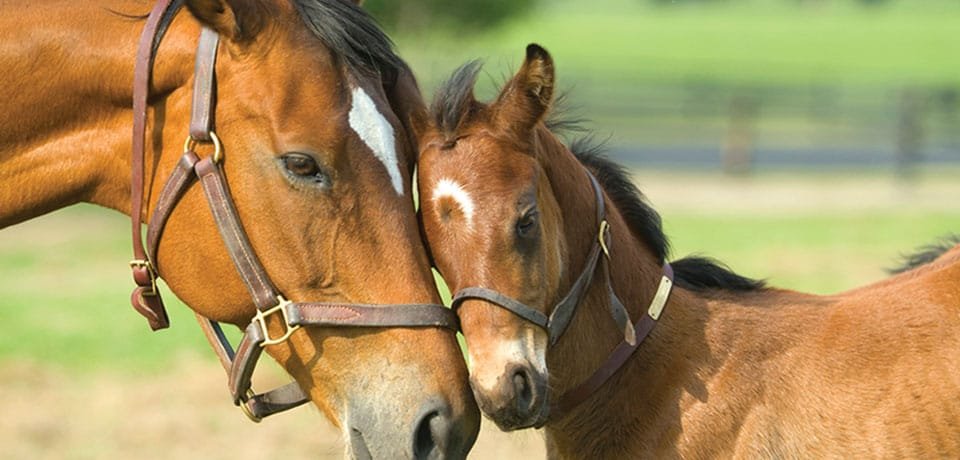Nutritional Needs of Horses at Different Life Stages
Horses, like all animals, have unique nutritional needs that change as they move through different life stages. Understanding these requirements is essential for maintaining their health and performance. In this blog, we’ll explore the nutritional needs of horses at various life stages, from foals to senior horses.
1. Foals and Weanlings
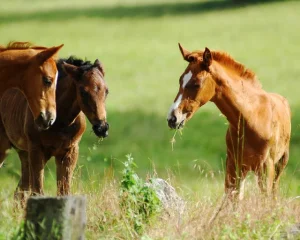
Foals are born with a unique set of nutritional requirements. During the first few months of life, they rely heavily on their mother’s milk, which provides the essential nutrients needed for growth and development.
Key Nutritional Needs:
- Protein: Foals require a high protein intake to support their rapid growth. The quality of the protein is important, as it should come from easily digestible sources.
- Energy: Foals are energetic and need adequate calories to support their active lifestyles.
- Minerals: Calcium and phosphorus are crucial for bone development. Ensuring a balanced intake is vital to prevent developmental issues.
As foals transition to weaning around six months, they should gradually begin to eat solid feed, including high-quality forage and specially formulated foal feed to meet their increasing energy and nutrient needs.
2. Yearlings
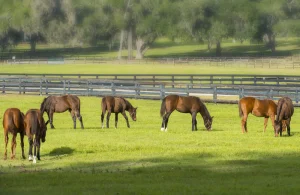
During the yearling stage, horses continue to grow rapidly, both in height and weight. This is a critical time for proper nutrition to ensure healthy development and to set the foundation for future athletic performance.
Key Nutritional Needs:
- Balanced Diet: A combination of good-quality hay, pasture, and a balanced grain mix will help meet the energy requirements of growing yearlings.
- Vitamins and Minerals: Providing a mineral supplement can ensure they get essential nutrients, such as zinc and copper, which are important for bone and tissue health.
- Water: Access to clean, fresh water is crucial for hydration and overall health.
3. Adult Horses
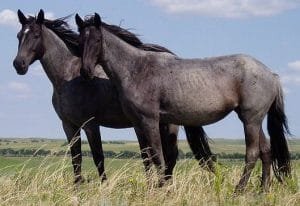
Once horses reach adulthood, their nutritional needs can vary significantly based on their activity level. Horses used for heavy work or competition require more calories and specific nutrients compared to those that are retired or used for light riding.
Key Nutritional Needs:
- Energy: Adult horses in work need a higher calorie intake, which can come from grains and high-quality forage.
- Protein: While not as high as in growing horses, adult horses still need adequate protein for muscle maintenance and overall health.
- Electrolytes: Horses that sweat heavily during exercise may require electrolyte supplementation to replenish lost minerals.
4.Pregnant and Lactating Mares
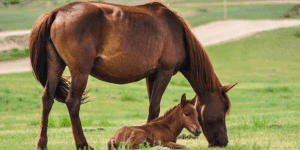
Mares have unique nutritional requirements when pregnant and lactating. Their nutritional intake directly impacts the health of both the mare and her foal.
Key Nutritional Needs:
- Increased Calories: Pregnant mares need more calories to support fetal growth, especially in the last trimester.
- Quality Forage: High-quality hay and pasture are vital to ensure adequate fiber intake, which aids digestion.
- Supplements: A balanced mineral supplement that includes folic acid, calcium, and phosphorus is crucial during this stage.
During lactation, mares need even more energy and nutrients to produce milk, so their diet should be carefully managed to meet these increased demands.
5. Senior Horses
As horses age, their nutritional needs can change dramatically. Senior horses may face dental issues, decreased digestion efficiency, and a higher risk of certain health problems.
Key Nutritional Needs:
- Easily Digestible Feed: Senior horses often benefit from softer feeds, such as soaked hay cubes or pelleted feed, to accommodate dental issues.
- High Fiber: Maintaining a high-fiber diet is important for digestive health, so good-quality hay is essential.
- Supplements: Older horses may need joint supplements and additional vitamins and minerals to support overall health.
Each stage—foals, yearlings, adults, pregnant mares, and seniors—requires tailored nutrition to support growth, health, and performance. By providing appropriate feed and supplements, horse owners can ensure their equine companions thrive throughout their lives. Always consult with a veterinarian or equine nutritionist for personalized advice and to make informed decisions about your horse’s diet.

